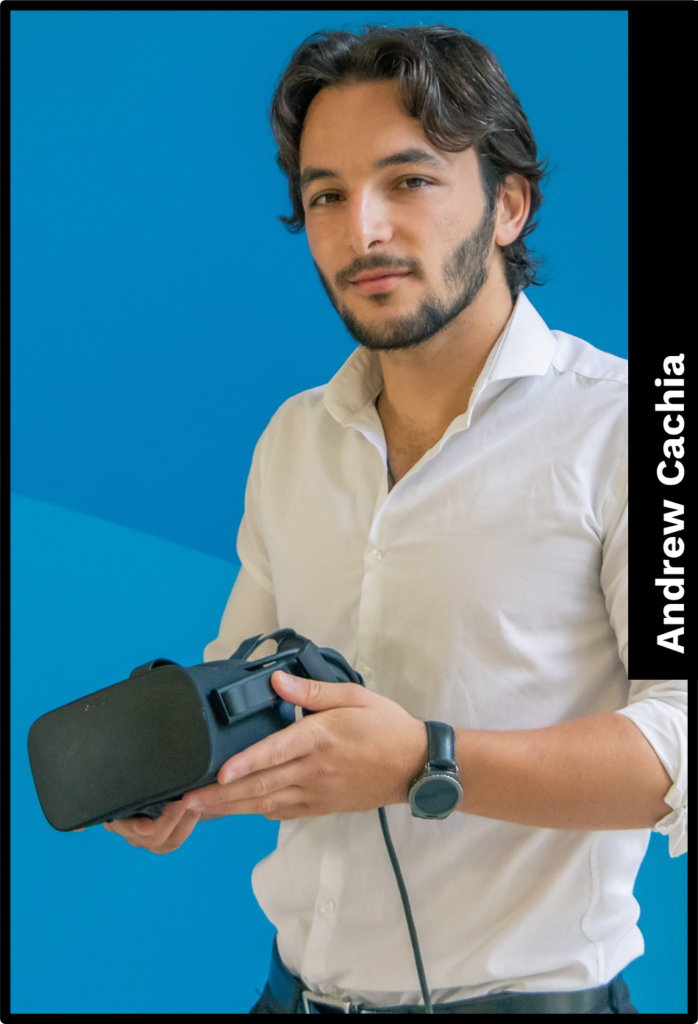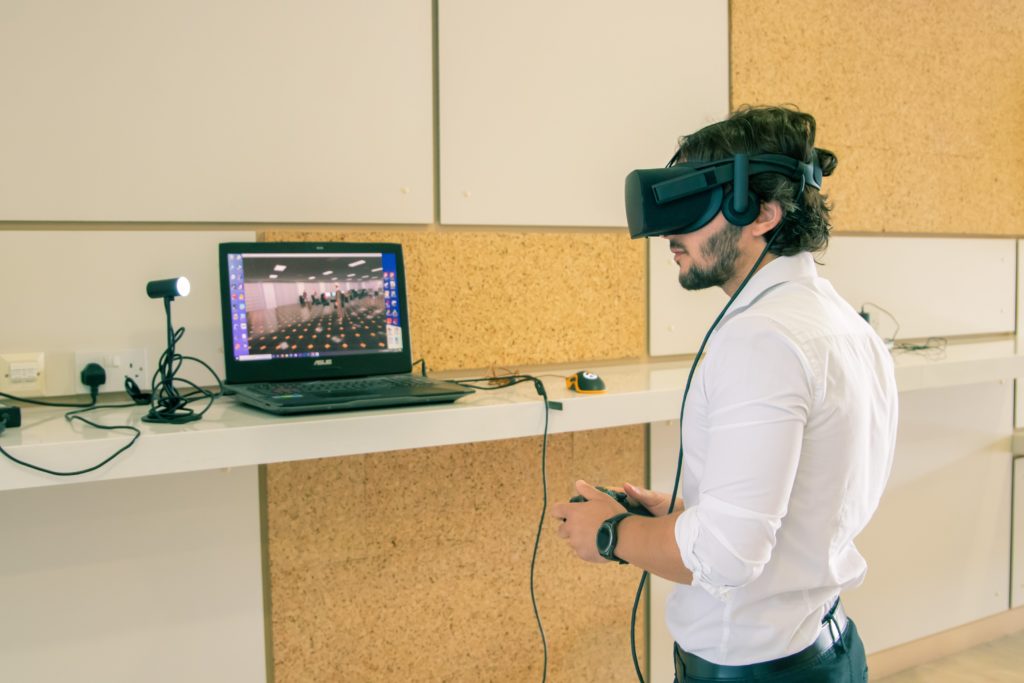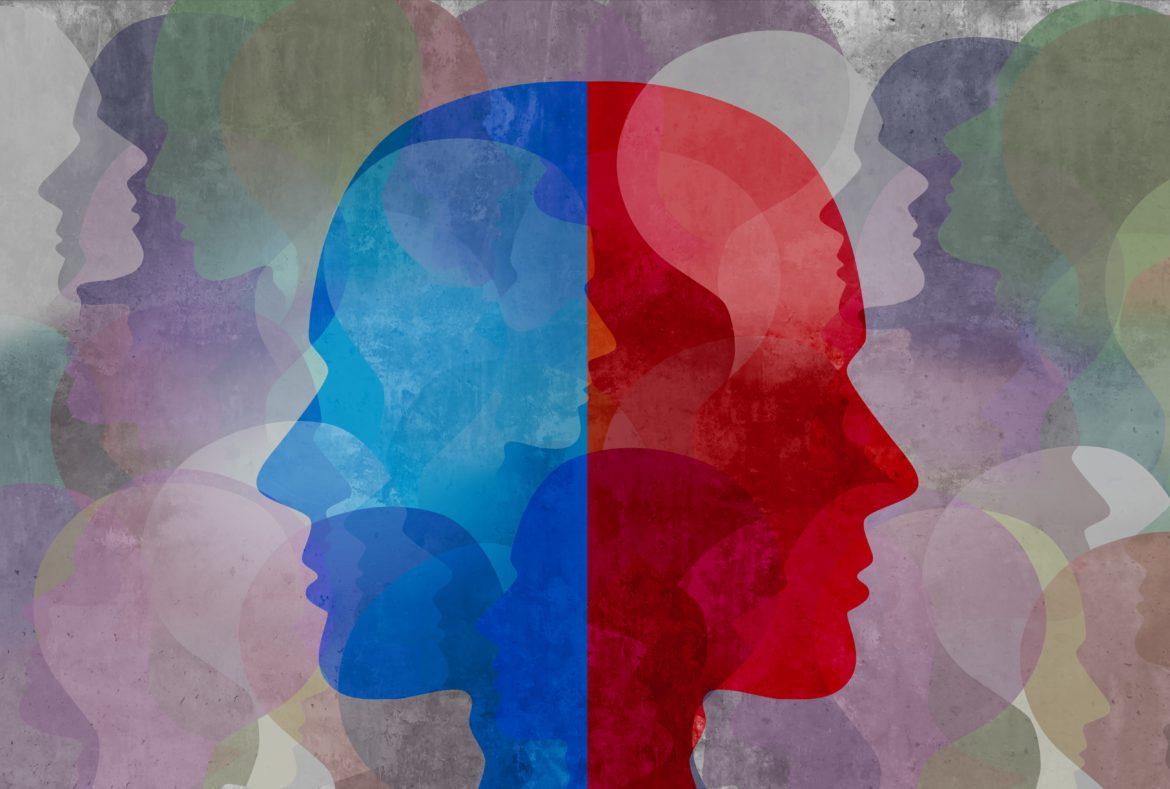By bringing together AI and VR, ANDREW CACHIA is giving a whole generation of student nurses the chance to understand schizophrenia in a way that has never been possible before.
From experts giving advice on various media to celebrities revealing their conditions, mental health is finally being taken seriously and discussed publicly. Yet, while awareness has increased, the truth remains that it is hard for those who do not suffer from mental disorders to understand what a person who does goes through.
That, however, is where Andrew Cachia’s Master’s in Artificial Intelligence (AI) comes in.

Working together with the Department of Mental Health at the University of Malta, which is the institution that first asked for such a project to be initiated, Andrew has married AI with Virtual Reality (VR) to create a virtual world. In this world people can experience the realities of schizophrenia, a condition in which sufferers interpret the world abnormally, at first hand.
“Once the user enters the simulation, they will find themselves in an office scenario,” Andrew explains. “The user is then free to roam the space, interact with the characters, and even use a number of the objects found within it, such as the telephone. The AI side of this comes with the actual interaction.”
Upon the user interacting with an object or a character, the AI algorithm, which was created using AI Planning techniques, sets in motion a series of events that are unique to each player’s interaction. So, for example, if the user speaks to the colleague character, and the latter asks how the user’s day was, the software will initiate a reaction that is correlated to the specific answer.
“So should the user tell the colleague that their day was good, then the user may start hearing bodyless voices repeating how the person’s day can never really be good,” Andrew continues. “AI truly increases the immersivity of the experience and gives users a unique experience every time they try it.”
The idea behind this software is that users get to experience what it’s really like to live with schizophrenia. The ‘effects’ in this virtual world include seeing things that are not there (to correlate with the visual hallucinations schizophrenia sufferers experience) and hearing voices (this applies for auditory hallucinations), among other things.
The main users of this schizophrenia simulation software are student nurses reading for a Master’s in treating and handling patients with mental disorders, and it’s already being used for this purpose. Many, in fact, have hailed it for the way it humanises the condition and for how it has aided them in being more emphatic in the way they view it.
As a pilot project, this software has truly been a success, and Andrew is incredibly pleased with the results. But, more than just being grateful for what he’s achieved, he’s also appreciative of what the process has taught him.
“I found this project to be extremely interesting,” he says. “Firstly, it combined VR with AI, which is a field that is still largely unexplored. Secondly, there was the challenge of realistically simulating a condition like schizophrenia, which until now has mostly been done through role play. Thirdly, this is contributing to aiding those with mental health issues, which is a noble cause and that makes it all the better in my eyes.”
Talking about what this project could develop into in the future, Andrew says that he would love to continue building on the work that has been done so far. For a start, he would like to create a more realistic virtual world so that the divide between the real and the fictitious is lessened. He’d also like to see the project applied to other scenarios and types of mental disorders so that health students can understand the conditions better, and patients can receive better treatment and more empathy.

“Through the trial runs, we realised how impactful such a project can be. It made people understand the reality behind a mental illness that can be very debilitating.” Such projects continue to show that learning in the future will be very different from what we experience today but, in the end, it will always serve the same purpose: to make us better, more understanding human beings.

